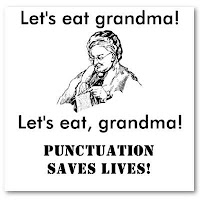In my future English classes, I will implement frontloading, during reading, and after reading activities to assist students in understanding plot, characters, and theme. In my government classes, I can see how several comprehension strategies could help when reading primary documents such as legislative bills or proposals.
VOCABULARY: Vocabulary seems to me a foundation for comprehension. We communicate by using words, and if you don't know the meanings of those words, comprehension becomes pretty much nonexistent.
I plan to implement A LOT of morpheme instruction in my classes. I took an entire class here at USU on Latin and Greek morphemic elements, and that has been, by far, one of the most helpful classes of my life. I feel that devoting a large chunk of time to this type of instruction is worthwhile since it will help students in every subject, with every text they read, and in every day of their lives.
ORAL LANGUAGE: Speaking is one of the primary ways we communicate with one another, so a mastery of the skill of oral language supports that main goal of high literacy levels. By talking something out, we understand it on a deeper and more influential level.
LINGUISTIC DIVERSITY: Students can neither comprehend texts or express themselves through oral language if they are required to do so in a language or dialect which is foreign to them. Each person has his own primary discourse. This is not something we as teachers should be afraid of. Rather, we should be excited by how dynamic and varied language can be. Although I do believe we should strive for some semblance of consistency, sundry approaches to expression are what make interactions with others so interesting.
WRITING: Oh my. Writing. As I've told my friends many times before, I chose to be an English major for the reading and not for the writing. To my dismay, they came as a packaged deal. As much as I still loathe writing sometimes, I appreciate the vast opportunities writing has given me to strengthen my comprehension, vocabulary, and expressive language skills.
I believe that which challenges us is actually best for us, so I plan to implement writing into my classes on a frequent basis. I like the idea of using the six traits of writing as a way for students to target various aspects of writing. Because writing is such a complex process, breaking it down serves to make the task more managable.
DIGITAL AND CRITICAL LITERACY: I love the digital world. I love the fact that, as I am baking cupcakes right now, I can pull up a webiste on the Internet and find a yummy frosting recipe. I love that I can talk to my friend in France and keep up to date with the happenings in his life. I love that I can have access to endless information about any topic I can think of ... INSTANTLY. However, I feel exhausted living in a digital world, as well. I'm sure my students will feel much the same way as they, too, will have endless streams of information poured upon them throughout the day. This is why critical literacy is so important; developing the ability to analyze and evaluate the credibility and usefulness of any one perspective can save us from buying into just any old "authority." I think critical literacy is about students gaining the confidence to critique information and perspectives while finding some solidarity in their own lives.
Overall, I have found both the theoretical and practical measures of this class intriguing and useful. Thank you, Amy and fellow classmates, for helping me to put the pieces together.









